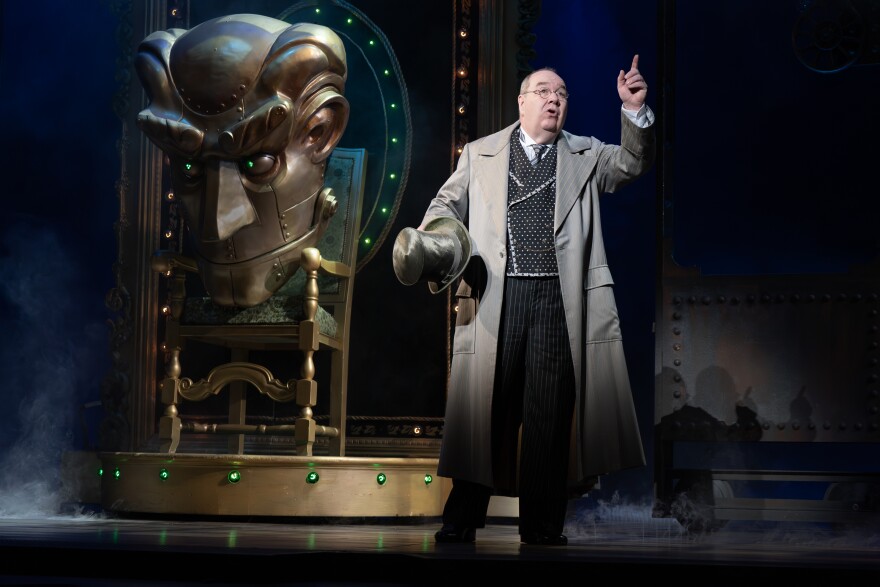The musical “Wicked” is in the middle of its two-weekend run at Proctors in Schenectady. If you haven’t seen it yet, you should. It’s a wonderful tale about friendship and the responsibilities of fighting injustice. It also has a political undercurrent that can be related to current events.
If you’re not familiar with the work it’s essentially a prequel to “The Wizard of Oz” and a revisionist look at Oz itself. The show centers on a young girl, who, because of her green skin, is treated like an outcast. Her name is Elphaba.
At a private college specializing in sorcery she meets Galinda, her total opposite. She is wealthy, beautiful and a delightful song from the show tells you she is popular. Though seemingly shallow, finding out how certain segments of society are being horribly mistreated, they become close friends in order to help the downtrodden.
The main concerns of the young women are the animals who had the ability to talk and teach at their school. Together they travel to the Wizard to plead their case only to find out he is the person who is persecuting the animals and other minorities.
Rebuffed by the Wizard, they eventually unite to bring down the Wizard and restore peace and dignity to a land led by an insecure, bullying fraud.
Galinda changes her name to Glinda and joins Elphaba, who is now known as “The Wicked Witch of the East.” They each fight for justice in their own way.
The musical does address the social discord in Oz, but not in the horrifying depth that is addressed in the novel. However, the stage adaptation is brilliant in the way it deals with the political issues. It becomes the bond for friendship between Elphaba and Glinda.
The theme that seems to capture most audience members is how a shy outcast girl becomes an inspirational figure in the fight for justice.
Adding to the enjoyment is a touching romance. For lovers of the original 1939
film, the way Elphaba saves her friends from harm is ingenious. Add to this, gorgeous sets and costumes, beautiful music and songs that will stay in your head indefinitely - this is a classic Broadway musical that deserves its 21 years-and-counting run.
But, back to the political statements in the play. "Wicked” was first produced on Broadway in 2003. The novel was published in 1995. Clearly this was not created as commentary on the politics of 2025. Yet, like so many books and movies of the past, evil behavior can seem current and even scary.
It doesn’t take much to relate to the silencing of an animal professor at a college to culture-cancelling policies at universities today.
Watching flying monkeys capturing citizens of Oz and bringing them to torture palaces makes one cringe. It’s also relatable to masked thugs forcibly taking people off the streets based on the color of their skin and placing them in detention centers.
Somehow the targets of fear, injustice and prejudice change, but today’s victims who have become symbols of division can see themselves clearly.
I saw the show a few weeks ago in New York. City. It was with a group of family and extended family members, one of which was a transgendered young man. We spoke after the show and he told me how he wept at the scenes concerning the animals. With tears in his eyes, and fear in his voice he said, “That’s me. Soon they’ll be coming after me like they did the animals.”
I doubt that either L. Frank Baum who wrote the original book, or Gregory McGuire who wrote “Wicked” the novel, or Winnie Holzman who wrote the book for the musical had a specific person in mind when they wrote about the Wizard.
My point is “Wicked” shows us when an immoral and incapable man becomes the leader of a country, misuse of power and domination of the masses is destined to follow. Always look behind the curtain.
Bob Goepfert is theater reviewer for the Troy Record.
The views expressed by commentators are solely those of the authors. They do not necessarily reflect the views of this station or its management.





